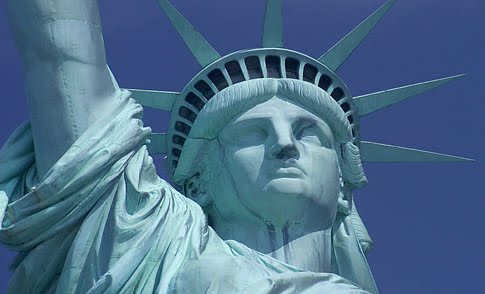This will be a hard week to top for history buffs (and conspiracy theorists), as the nation marks the 150th anniversary of the Gettysburg Address on Tuesday and the 50th anniversary of the assassination of John F. Kennedy on Friday. The fact the two milestones occur within days of each other gives us a great opportunity to reflect on the meaning they hold for us today and the manner in which they signaled pivotal turning points in our nation's history -- one signaling rebirth and renewed hope, the other a loss of hope in the future and faith in government.
First, the Gettysburg Address, which came in the midst of the darkest chapter in our nation's history, a war that ripped the country apart and cost 600,000 lives. Lincoln's magical words (the only thing he got wrong was the prediction that the world would not long remember what was said that day) on the greatest battlefield of the nation's greatest war signaled to the world that the United States would emerge from this great crisis stronger and more determined than ever to fulfill the promise of equality and freedom laid out by the founding fathers, and made impossible to realize by the scourge of slavery. The nation that had come so close to dying from the cancer of slavery would have a "new birth of freedom" anchored on the promise that "government of the people, by the people and for the people" would endure and, at last, serve all its people. The words Lincoln spoke 150 years ago did indeed represent a turning point in the nation's history, as the Union used the triumph at Gettysburg as a springboard to ultimate victory and the rebirth of the nation. To be sure, the years that followed would be difficult and, at times, marked by significant failure. The nation needed to overcome the tragedy of Lincoln's own assassination and embark on Reconstruction, the failures of which laid the foundation for the new cancer of Segregation, which would persist largely unchecked for 100 years. Government corruption reached new levels under the weak presidents that followed Lincoln, and it wasn't until Theodore Roosevelt's ascent nearly 40 years later that the nation would once again reap the fruits of a strong, effective presidency. But the United States did survive and grow; the industrial revolution would transform it into a world superpower; immigrants from around the globe flocked here for the promise heralded by Lincoln's "new birth of freedom"; and in time it would continue its march toward equality for all its citizens.
The assassination of JFK marked a different type of turning point, as a nation on the cusp of a "new frontier" (in the young president's words) after the dark years of the Great Depression and World War II seemed to again come apart at the seams in the years that followed that tragic day in Dallas. Whatever you think of JFK's accomplishments or failures during his short presidency, he conveyed a sense of vigor, promise and hope that few presidents before or since have possessed. That promise and hope, as well as faith in the power of government that Lincoln had heralded 100 years earlier, largely vanished in the years after JFK's assassination, and has never fully returned. While Lincoln's speech signaled the nation's exit from the terrible quagmire of Civil War, JFK's death set in motion a national quagmire of war, chaos and rebellion that defined the remainder of the decade, marked by a deep distrust and cynicism toward government (fed in part by the various conspiracy theories that surrounded his death). Fifty years later, we are still struggling to recapture the national confidence and optimism that JFK's presidency represented.
Of course, the comparisons are not quite that simple. Just as the years of healing and progress after Lincoln's address included significant setbacks and failures, the years after Kennedy's assassination were marked by some significant accomplishments: Long-overdue Civil Rights legislation; economic prosperity and Medicare; the moon landings. But the sense of where the nation was headed couldn't have been more different. In Lincoln's case, the nation had survived the test to its very survival and was moving inexorably forward, with a belief that there was light at the end of the tunnel of war and its best days lie ahead. Whatever stumbles we encountered along the way couldn't compare to challenge, and grief, of Civil War. In Kennedy's case, the assassination seemed to lead us from the bright possibilities of the New Frontier into the dark tunnel of Vietnam, Watergate and national malaise. Fifty years later, we're still searching for ways to exit that tunnel and rediscover the confidence and optimism that Kennedy's presidency represented.
Next: Was JFK a great president?

.jpg)
No comments:
Post a Comment